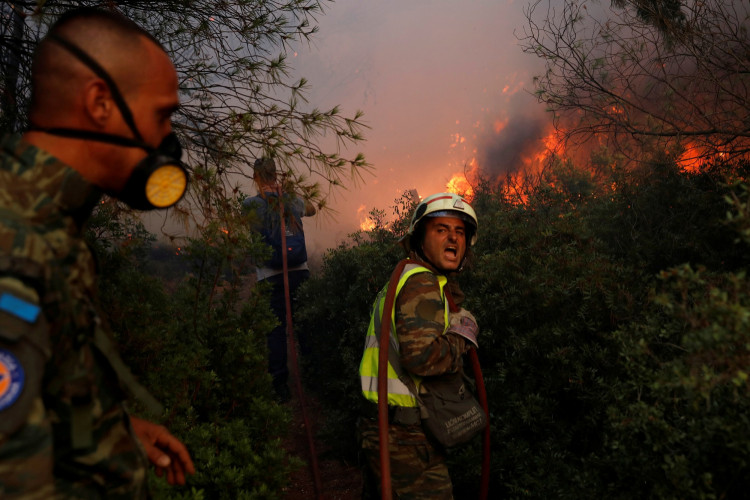On Sunday (July 24), Greek firefighters continued their two-day struggle against wildfires on the island of Lesbos as well as new fires in the western Peloponnese and in northern Greece, evacuating adjacent settlements as a heatwave developed.
The evacuation of two more villages, Vrisa and Stavros, was necessitated by a wildfire that broke out in hilly forests on Lesbos in the Aegean Sea close to Turkey on Saturday and destroyed homes at the seaside resort of Vatera.
A fresh wildfire in mainland Greece forced the evacuation of Gryllos hamlet after it threatened residences near Krestena in the western Peloponnese.
"The flames have encircled Krestena, there are reports of damaged homes, we need help," Anastasios Karnaros, a town council member, told Greek broadcaster Open TV.
As a heatwave that has been affecting other parts of Europe crept east and was predicted to linger for the majority of the upcoming week, temperatures reached 40 degrees Celsius in several parts of Greece on Sunday.
In the north of the nation, a wildfire burned for a fourth day as authorities battled to contain its devastation in a virgin forest close to Dadia, a natural habitat for black vultures.
"We are dealing with difficult terrain and access with winds changing direction," Civil Protection Minister Christos Stylianidis, coordinating efforts from the air and on the ground, told state TV ERT.
A well-liked tourist destination is Vatera, an 8 km long sandy beach in the southern portion of Lesbos. Six years ago, Lesbos was in the vanguard of Europe's refugee crisis. Homes were destroyed by the blaze, and one firefighter was hurt.
This year, Greece is experiencing a second summer of wildfires.
Authorities have dubbed this summer one of the harshest in the Mediterranean after a wildfire last week destroyed homes and caused hundreds of people to escape from mountains close to Athens.
During the country's worst heatwave in thirty years last year, wildfires destroyed roughly 300,000 acres of forest and scrub throughout Greece.
Greece is expected to experience a heatwave with temperatures reaching up to 40-42 °C, according to the National Meteorological Service EMY. The extended heatwave is anticipated to linger through the end of July, by an emergency advisory released Friday (July 22) at noon.
On Saturday, July 23, 2022, the heatwave is expected to start and hit the majority of the nation, especially in areas far from the coasts.The warm air masses travel from the coasts of North Africa and western Europe.





